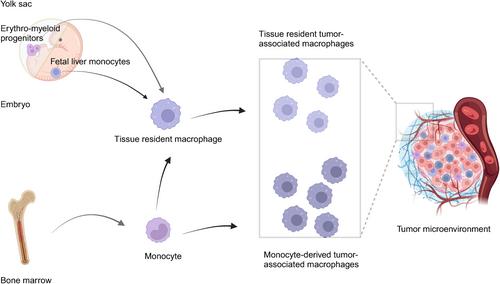Macrophages are essential in maintaining homeostasis, combating infections, and influencing the process of various diseases, including cancer. Macrophages originate from diverse lineages: Notably, tissue-resident macrophages (TRMs) differ from hematopoietic stem cells and circulating monocyte-derived macrophages based on genetics, development, and function. Therefore, understanding the recruited and TRM populations is crucial for investigating disease processes.
By searching literature databses, we summarized recent relevant studies. Research has shown that tumor-associated macrophages (TAMs) of distinct origins accumulate in tumor microenvironment (TME), with TRM-derived TAMs closely resembling gene signatures of normal TRMs.
Recent studies have revealed that TRMs play a crucial role in cancer progression. However, organ-specific effects complicate TRM investigations. Nonetheless, the precise involvement of TRMs in tumors is unclear. This review explores the multifaceted roles of TRMs in cancer, presenting insights into their origins, proliferation, the latest research methodologies, their impact across various tumor sites, their potential and strategies as therapeutic targets, interactions with other cells within the TME, and the internal heterogeneity of TRMs.
We believe that a comprehensive understanding of the multifaceted roles of TRMs will pave the way for targeted TRM therapies in the treatment of cancer.



